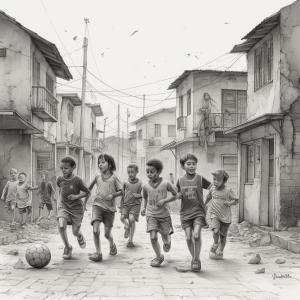You can train all day, you can practice all day, but the most important moment of any soccer player is the time spent under match conditions. Only during a match can the player evaluate his worth as a player and as a team member. Therefore it is crucial that the player prepares himself by eating the correct food and drinking the right amounts of fluid. What the player eats before and during the match can significantly effect his athletic performance. Also very important and often neglected is the post match diet. The players must continue to eat correctly in order to aid recovery and prepare their body for the next training session or match.
Eating and drinking can affect negatively the physical characteristics and particular the mental condition of a player. The psychological aspect is rarely taken into consideration, but they still play a part in the players confidence and self image. It is proven that the wrong food intake is harmful, but it is also proven that an athlete cannot perform at his best without having eaten for a long period of time. Hypoglycemia is one of the consequences of prolonged starvation. Does anyone know what glycemia is?
Glycemia refers to the concentration of one particular sugar, in this case glucose, in the blood. After a person eats, a normal person usually contains one gram of glucose per litre of blood. If the glucose levels drop below this level, the liver starts to work and synthesizes the required glucose and slowly introduces this to the blood stream. The only problem is, when a person hasn’t eaten for a long period of time, the levels of glycogen found in the liver diminish. (Glycogen is a complex carbohydrate consisting of interconnected chains of glucose molecules.) An enzyme within the liver is responsible for breaking up the glycogen into glucose molecules and then released into the blood stream.
So what happens when your child hasn’t eaten before a match? What happens when an athlete hasn’t eaten after a prolonged period of time?
Remember the basics, glycogen stores in the liver are restricted. So if you haven’t eaten for a while, the glycogen levels in your liver will deplete. So under these conditions, the levels of glucose in your blood decreases causing a condition known as hypoglycemia. Hypoglycemia affects the brain and under these conditions the brain cannot function properly. The brain cells also referred to as neurons, do not have their own energy store. Therefore they get their glucose from our blood and if glucose is depleted in our blood, the neurons cannot function properly. This is the reason why people who have not eaten for a long period of time feel light headed, have slower reflexes and their thinking is less efficient.
Scientific research has proven this on all occasions. People that were starved for a period of 8 hours and asked to do several tasks found it difficult to complete basic tasks. This was also proven amongst office workers and typist, not just athletes. Blood glucose concentrations lower than the average affects us mentally and physically. That is the reason why athletes/soccer players should never compete in a match without eating within the previous 8 hours.
Try and maintain food intake and do not allow your blood glucose to diminish. If you cannot prepare a meal, even snacking on healthy foods also known as “grazing” will sustain your glucose levels.



Leave a Reply